Deionized water, also referred to as DI water, is a type of highly purified water that’s used in applications requiring extreme purity. In this guide, we will answer the question, “What is deionized water?” We will also cover how the deionization process works as well as some of the most common applications of DI water.
What is DI Water?
Deionized water is a type of purified tap water that has undergone an ion exchange process to remove ions, atoms, and molecules. During the deionization process, many types of dissolved impurities are eliminated, including salt, carbon dioxide, organic contaminants, and minerals.Without any ions, deionized water should have a neutral concentration with a pH of 7. However, since it comes into contact with atmospheric CO2, this is not always the case. Contact with CO2 can form a weak carbonic acid, which reduces the water's pH to 5.5. However, this drop in pH only occurs after exposure to atmospheric CO2, so deionized water's initial pH reading should always be a neutral pH of 7.
Since the deionization process also eliminates minerals, DI water is sometimes referred to as demineralized water or DM water. This purified water is used in many commercial, domestic, and industrial applications.
The Deionization Process
The deionization process relies on ion exchange resins in the form of small plastic beads. These beads contain organic polymer chains with charged functional groups built into them. Each functional group features a fixed negative or positive charge.
To create deionized water, cation resin is regenerated using hydrochloric acid. Hydrogen has a positive charge and therefore attaches itself to the negatively charged resin beads. Anion resin is regenerated using sodium hydroxide. Hydroxyl has a negative charge, so it attaches itself to the positively charged anion resin beads. Different ions are attracted to resin beads at different strengths. Calcium, for example, is more strongly attracted to cation resin than sodium is. Since the hydrogen on the cation resin and the hydroxyl on the anion resin do not have a strong attraction to the bead, ion exchange can occur.
During the exchange process, positively charged cations flow across the cation beads, exchanging them for hydrogen. At the same time, negatively charged anions flow across anion beads, exchanging them for hydroxyl. When the hydrogen and hydroxyl are combined, pure H2O is formed. After a certain amount of time, all of the cation and anion resin beads’ exchange sites are used, and the tank will no longer be able to produce deionized water. The resin beads will then require regeneration before they can be used again.
Main Uses of DI Water
DI water is used throughout a range of diverse applications, including: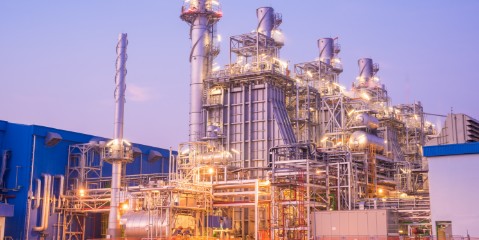
Power Plants
For many years, power plants have used deionized water for numerous purposes, including makeup water for high-pressure boilers. It is also often used for producing steam to generate electricity and drive turbines.
Processed Food Manufacturing
Water quality is critical in food preparation and processing. Water used to prepare food can alter its taste, appearance, nutrition, and overall safety. As such, food processing and manufacturing facilities rely on deionized water to wash fruits and vegetables and process various food items.
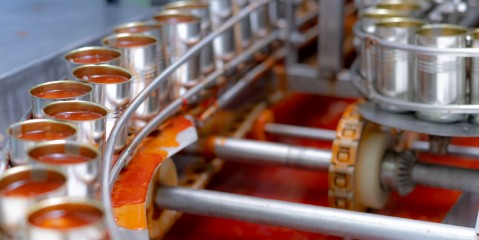
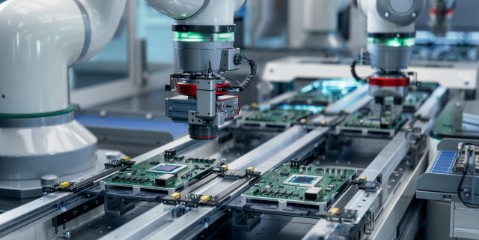
Battery Plants
Deionized water is used in the manufacture of batteries and other electronics. It can be utilized to clean and rinse electronic boards and other components, as well as for preparing solutions used throughout the manufacturing process.
General/Industrial Manufacturing
Machinery and equipment used in manufacturing are subject to heavy use and, therefore, must be cleaned regularly to prevent the buildup of dirt. Ordinary water has a high mineral content that could cause equipment parts to corrode much faster. For this reason, the manufacturing industry uses DI water to clean, cool, and lubricate heavy-duty machinery, improving its longevity. Other manufacturing applications of DI water include glass production, powder coating, and steam machinery.
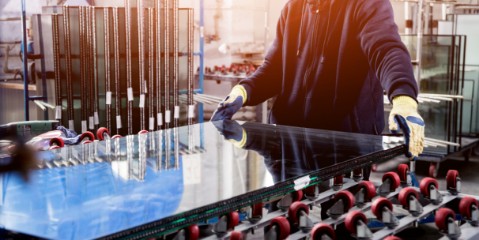
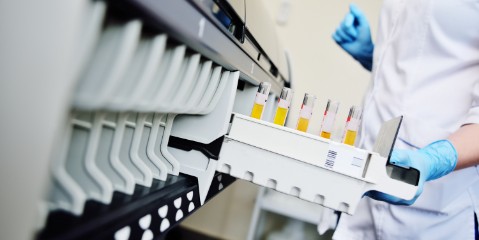
Medical/Laboratory Manufacturing
Obtaining accurate results is crucial when conducting lab experiments. Regular water has minerals and other potential contaminants that could skew test results, resulting in unusual reactions, potential damage, and financial losses. To prevent this, laboratory experts use ultra-pure DI water to prepare solutions and rinse parts. DI water can also be used in pharmaceutical/medical environments to clean needles and in analytical machines such as blood sample machinery.
Car Detailing and Car Washes
Deionized water is widely considered the best water for car washing and detailing. Because DI water doesn’t contain minerals, it won’t leave behind water spots after drying. Additionally, DI water’s lack of ions makes it a magnet for various contaminants, cleaning vehicles much quicker than with standard water.
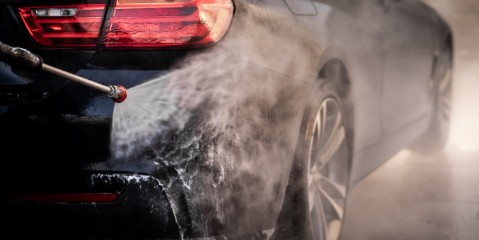
Benefits of DI Water
Using DI water comes with many advantages. As a pure, non-corrosive substance, it’s an excellent solution for handling sensitive equipment and performing tasks that demand precision.
DI water does not contain any contaminants, meaning no spots or residue are left behind once it dries. This makes it a highly popular option for car washes, as well as for rinsing sensitive electronic components and pharmaceutical tools.
As one of the purest forms of water, DI water is excellent for use in sensitive equipment. Unlike other types of water, it will not cause mineral build-up. This keeps equipment running well, reduces cleaning needs, and can even extend its lifespan. High-purity water is also essential in laboratory settings to prevent unwanted chemical reactions.
Since deionized water lacks ions that can interfere with chemical reactions, it’s common in laboratory settings as a solvent. It can be combined with many ingredients and mixtures without altering them or adding unwanted minerals.
Deionized Water from Reynolds Culligan
At Reynolds Culligan, we offer a comprehensive range of water treatment equipment, including DI water systems. With over 200 years of combined experience, our team can meet your needs with quality DI water solutions that meet your unique requirements. For help finding the right deionized water system for your needs, reach out to our team or request a quote today.

